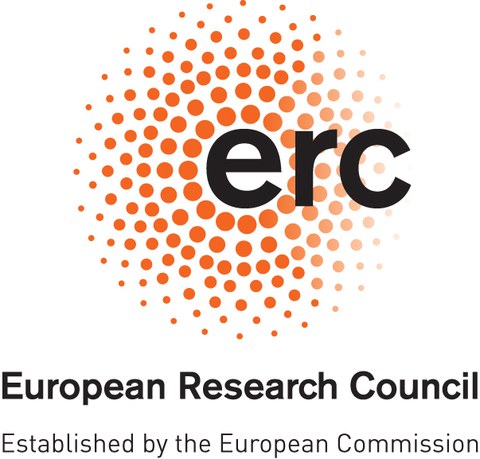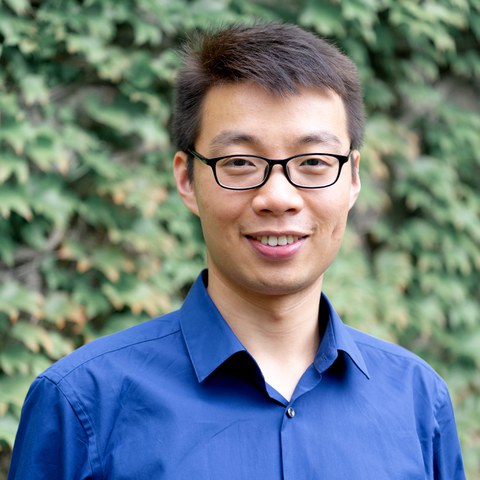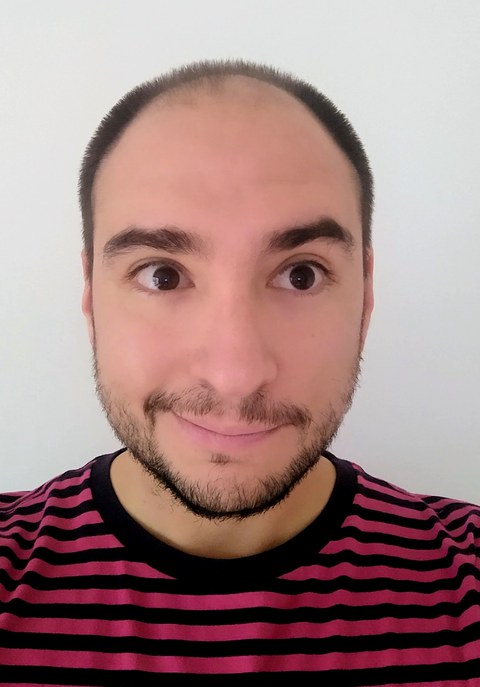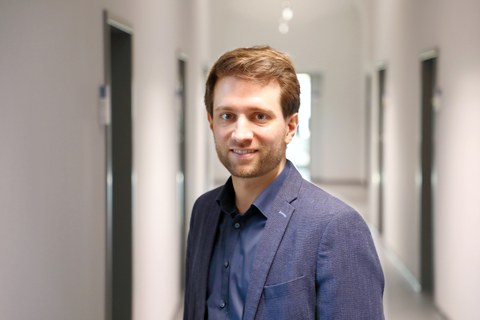Sep 05, 2023
ERC Starting Grants: Three young TUD researchers among the laureates
Today, the European Research Council (ERC) announced the winners of 400 Starting Grants for early-career researchers across Europe, including three outstanding scientists from TU Dresden, who will each receive EUR 1.5 million for their research between 2024 and 2028.
The ERC Starting Grants help researchers at the beginning of their careers to launch their own projects, form their teams and pursue their academic endeavors. The grants – totaling a whopping EUR 628 million – support cutting-edge research in a wide range of disciplines, from medicine and physics to social sciences and humanities. 2,696 proposals were submitted for the current round of the competition. Just under 15 percent of the applications were awarded funding.
The successful applicants will undertake their projects at universities and research centers in 24 European countries. Most of these projects are based in Germany (87), France (50), the Netherlands (44), and the United Kingdom (32). The award-winning researchers come from Europe and further afield, with a total of 44 nationalities represented, primarily researchers from Germany (66), Italy (57), France (32), and the United Kingdom (24).
Dr. Minghao Yu: Magnesium batteries as next generation energy storage systems
With his "BattSkin” project (Practical Magnesium Batteries Enabled by 2D Crystalline Polymer-Based Artificial Electrode Skins), chemist Dr. Minghao Yu aims to advance research into a new and more sustainable battery technology over the next five years. The focus will be on advancing the promising magnesium batteries, using precise polymer chemistry to govern the interfacial ion dynamics. Magnesium batteries are considered top candidates in the race for the next generation of battery technologies due to their low cost, high efficiency, sustainability, and safety. So far, they are still the subject of fundamental research, since charge transfers at the interface in particular still pose problems in practical implementation.
In his ERC project, Dr. Minghao Yu will work on a groundbreaking concept in which molecule-specific customizable 2D crystalline polymers (2DCPs) serve as artificial electrode 'skins', a kind of interphase, to regulate interfacial ion transport and make magnesium batteries ready for application. “With the project, I expect to strengthen my research independence by assembling a skilled and competitive research team with diverse expertise. Meanwhile, the scientific outcomes will earn me a unique academic reputation in the field of next-generation sustainable batteries,”Yu is convinced.
The Chinese-born chemist has been leading a research group at cfaed (Center for Advancing Electronics Dresden) since March 2019 and works at the Faculty of Chemistry and Food Chemistry at TU Dresden. He has already been listed several times in Clarivate Analytics’ list of Highly Cited Researchers and has received numerous other awards.
Dr. Alejandro Tabas: How does the human brain makes sense of what we hear?
Our brains are capable of effortlessly processing more than 200 spoken words per minute in casual conversation. This phenomenal skill stems from the ability to predict what the speaker might say next. In his “SynPrePro” (Empirical and Mechanistic Foundations for Synergistic Predictive Processing in Sensory Pathways) project, Dr Alejandro Tabas wants to explore how the human auditory system derives meaning from everything we hear. “Only the most primitive parts of the human brain, the subcortical pathways, can process sounds that change very quickly, like speech sounds. On the other hand, only the cerebral cortex, which are prominently developed in humans, are capable of the abstract reasoning,” he explains. This abstract thought is necessary to make sense of complex stimuli such as language or music. “With SynPrePro, I want to explain how the two parts of the brain, the subcortical and cortical regions, work together to quickly process everything we hear”, says Alejandro Tabas about his project.
Tabas studied Physics and machine learning in Madrid and Barcelona. For his PhD in Bournemouth University (UK), he researched how the brain processes pitch. At the Max Planck Institute for Human Cognitive Sciences in Leipzig and TU Dresden, he then studied how subcortical pathways use abstract knowledge to process sounds. He is currently working on how the brain uses probabilistic reasoning to infer what it cannot observe at the University of Cambridge.
Prof. Jakob N. Kather: Deep learning for cancer research
In the NADIR project (New Directions for Deep Learning in Cancer Research Through Concept Explainability and Virtual Experimentation), Prof. Jakob Nikolas Kather is investigating how artificial Intelligence and deep learning can be use for cancer research. “The ERC funding will allow me to combine translational cancer research with computational pathology. By combining clinical and technical methods, we will develop a new approach to understanding tumors, which will facilitate the development of new treatment strategies,” explains Jakob N. Kather, Chair of Clinical Artificial Intelligence at the Else Kröner Fresenius Center (EKFZ) for Digital Health at TU Dresden.
Deep learning with artificial neural networks can be used to extract patterns and structures from images of tissue samples, which can then be used to predict genetic characteristics and response to tumor therapies. This requires the integration of additional clinical patient data. Deep learning has its limitations – in particular, it is sometimes difficult to replicate and lacks a connection to biological knowledge and experiments. The NADIR project aims to close these gaps. NADIR will serve as a tool for cancer research and will concentrate on the interrelationships between tumors and the immune system in certain forms of cancer.
Prof. Kather is a physician specializing in internal medicine and an interdisciplinary researcher. He has led the Clinical Artificial Intelligence research group at the EKFZ for Digital Health since June 2022, developing AI methods for use in clinical settings. He has already received several awards for his outstanding research achievements, including the prestigious Heinz Maier-Leibnitz Prize in 2021.
About the ERC
The ERC, set up by the European Union in 2007, is the premier European funding organization for excellent frontier research. It funds creative researchers of any nationality and age, to run projects based across Europe. The ERC offers 4 core grant schemes: Starting Grants, Consolidator Grants, Advanced Grants and Synergy Grants. With its additional Proof of Concept Grant scheme, the ERC helps grantees to explore the innovation potential of their ideas or research results. The ERC is led by an independent governing body, the Scientific Council. The overall ERC budget from 2021 to 2027 is more than €16 billion, as part of the Horizon Europe program.
Contact:
Press Office of TU Dresden
Tel.: +49 351 463-32398
Anja Stübner
Else Kröner Fresenius Center for Digital Health
Press Office and Public Relations
Tel.: +49 351 458-11379
www.digitalhealth.tu-dresden.de
Nicole Gierig
School of Science
Press Office and Public Relations
Tel.: +49 351 463-39504




